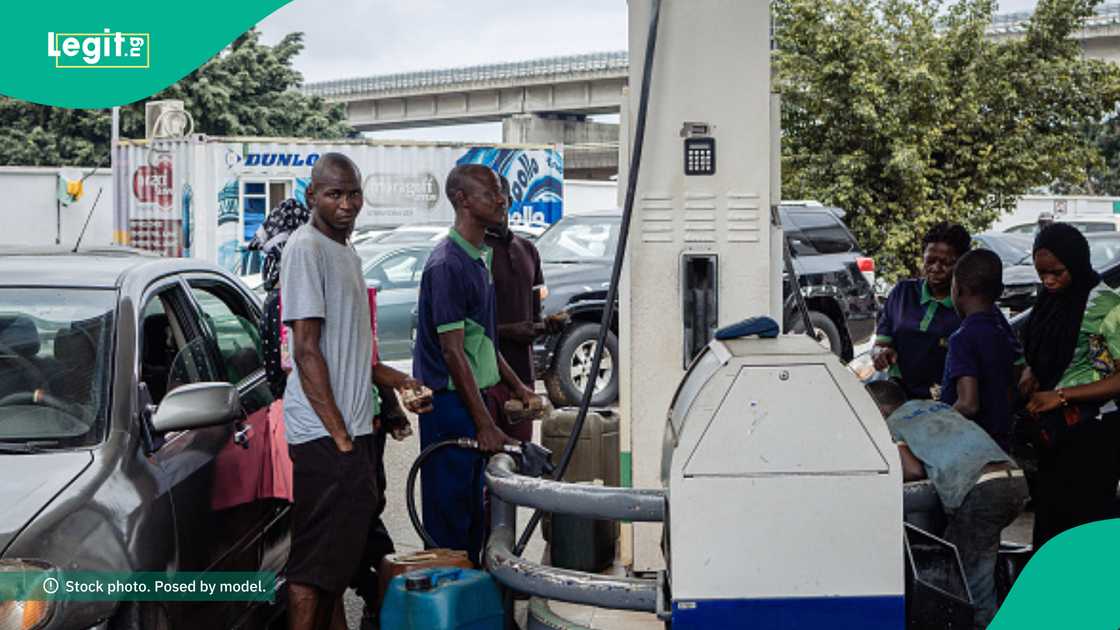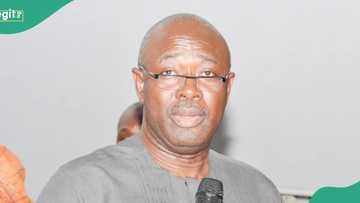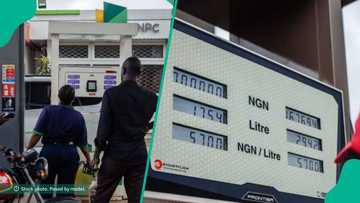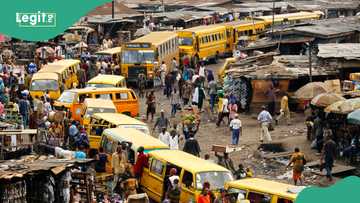Nigeria Still Imports 80% of Petrol Despite Operations of Dangote, PH Refineries - Report
- About 31.8 million liters, or nearly 79.5%, of Premium Motor Spirit (PMS) are imported into Nigeria
- According to truck out data, Nigeria presently uses more than 40 million liters of gasoline every day
- The overall in-country refining capacity is 8.2 million liters, of which 1.2 million are controlled by NNPC Ltd
CHECK OUT: Education is Your Right! Don’t Let Social Norms Hold You Back. Learn Online with LEGIT. Enroll Now!
Legit.ng journalist Zainab Iwayemi has 5-year-experience covering the Economy, Technology, and Capital Market.
Investigation has shown that Nigeria consumes over 40 million liters of petrol per day. This is according to truck out data from the Nigerian Midstream and Downstream Regulatory Authority (NMDPRA).

Source: Getty Images
Out of daily fuel consumption, the country is currently importing 31.8 million liters, or almost 79.5%, of Premium Motor Spirit (PMS) to compensate for its lack of refining capacity.
With NNPC Ltd controlling 1.2 million litres and Dangote Refinery contributing an average of seven million litres, the total in-country refining capacity is 8.2 million litres. Modular refineries are no longer an option because they now exclusively make diesel.

Read also
Nigeria's oil production rises to new high amid NNPC $8bn crude swap deal, minister explains
Thus, just 20.5% of the nation's petrol needs are satisfied by domestic refineries; the rest, 79.5%, or 31.8 million litres, are imported.
Although the Dangote refinery currently produces around 30 million litres of gasoline, only roughly seven million of that amount is sold domestically. The amount rose by five million litres in October from its original 25 million litres.
Dangote imports crude from US, others
Due to the Dangote refinery's persistent complaints about not being able to obtain enough crude oil from NNPC Ltd., it was forced to import unknown amounts of crude oil from the United States and other countries.
With the release of 16.3 million liters, the Dangote Refinery began lifting gasoline to NNPC in September 2024.
When compared to the original 25 million liters per day agreement with NNPC, the volume, according to sources, represents an 8.7 million liter deficiency.
Local production unable to meet needed capacity
A top executive at a major downstream marketing organization confirmed to the Daily Sun over the weekend that they have started importing petrol because of a scarcity in local production.
According to the source, they are turning to the importation of petroleum products because the refining capacity is insufficient to satisfy local demands.
“The truth of the matter is that it is better for us to source petrol locally because it takes away from us the challenge of having to source for foreign exchange. But because we cannot get the required quantity needed, we have to import and this is not for us alone but for other marketers,” the source stated.
In October, Dangote Group President Aliko Dangote promised that his refinery had over 500 million liters of gasoline on hand, more than enough to supply Nigeria if merchants purchased from it.
Dangote questioned why private retailers and the state-owned Nigeria National Petroleum Company Limited (NNPC) were still importing gasoline since his refinery can generate enough.

Read also
Dangote, other Nigerian refineries face crude oil supply shortage as NNPC battles debt servicing
“I am expecting that the NNPC Ltd and the marketers should stop importing; they should come and collect what they need. I don’t know if you understand what it means to keep half a billion litres in our tanks; it is costing me money,” he said.
Dangote did not specify how long his refinery, which produces 650,000 barrels of gasoline per day, had been refining and storing the 500 million liters of gasoline.
He clarified that his refinery has enough gasoline on hand, but marketers have not been purchasing it. He also emphasized that, as a producer, the refinery is not accountable for the shortage because it does not manage fuel distribution.
NNPC announces Warri Refinery resumed operations
Legit.ng reported that The Nigerian National Petroleum Company Limited (NNPCL) has announced that the 125,000-barrel-per-day Warri Refining & Petrochemicals Company (WRPC) has resumed operations.
Mele Kyari, the NNPCL Group Chief Executive Officer, disclosed this during a tour of the facility in Delta state on Monday, December 30.
The news of the operational refinery comes barely a month after the old Port Harcourt Refinery began operations.
PAY ATTENTION: Сheck out news that is picked exactly for YOU ➡️ find the “Recommended for you” block on the home page and enjoy!
Source: Legit.ng



